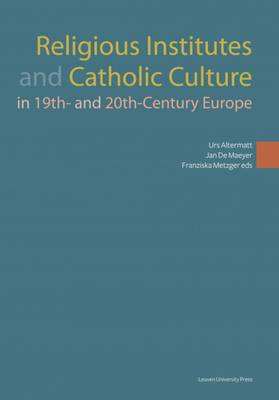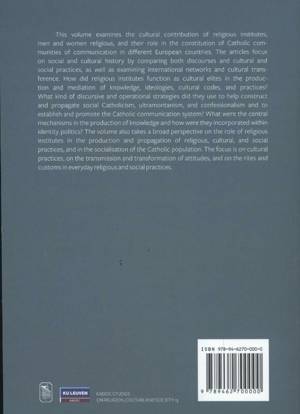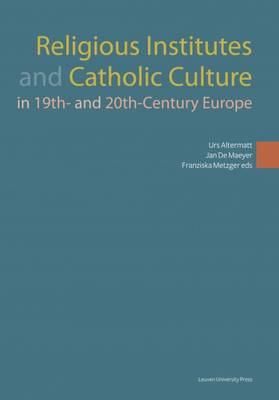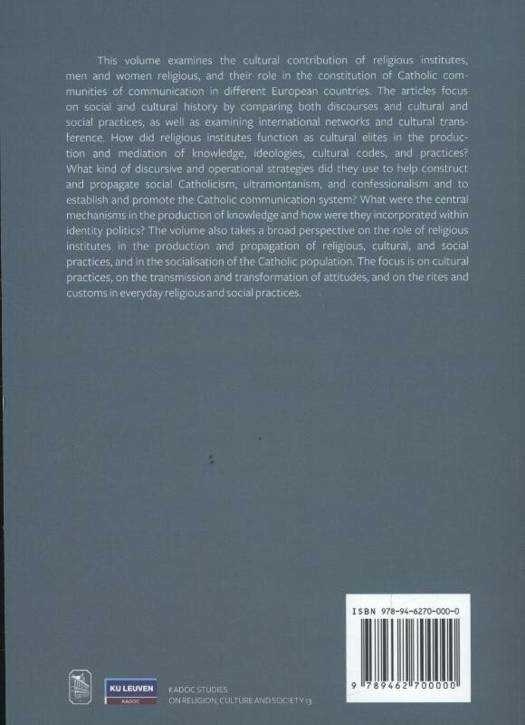
Bedankt voor het vertrouwen het afgelopen jaar! Om jou te bedanken bieden we GRATIS verzending (in België) aan op alles gedurende de hele maand januari.
- Afhalen na 1 uur in een winkel met voorraad
- In januari gratis thuislevering in België
- Ruim aanbod met 7 miljoen producten
Bedankt voor het vertrouwen het afgelopen jaar! Om jou te bedanken bieden we GRATIS verzending (in België) aan op alles gedurende de hele maand januari.
- Afhalen na 1 uur in een winkel met voorraad
- In januari gratis thuislevering in België
- Ruim aanbod met 7 miljoen producten
Zoeken


Religious institutes and catholic culture in 19th- and 20th-century Europe
€ 59,45
+ 118 punten
Omschrijving
This volume examines the cultural contribution of religious institutes, men and women religious, and their role in the constitution of Catholic communities of communication in England, Germany, Liechtenstein, the Low Countries, the Nordic countries, and Switzerland.
Specificaties
Betrokkenen
- Uitgeverij:
Inhoud
- Aantal bladzijden:
- 215
- Taal:
- Engels
- Reeks:
- Reeksnummer:
- nr. 13
Eigenschappen
- Productcode (EAN):
- 9789462700000
- Verschijningsdatum:
- 5/03/2014
- Uitvoering:
- Paperback
- Afmetingen:
- 170 mm x 238 mm
- Gewicht:
- 440 g

Alleen bij Standaard Boekhandel
+ 118 punten op je klantenkaart van Standaard Boekhandel
Beoordelingen
We publiceren alleen reviews die voldoen aan de voorwaarden voor reviews. Bekijk onze voorwaarden voor reviews.









